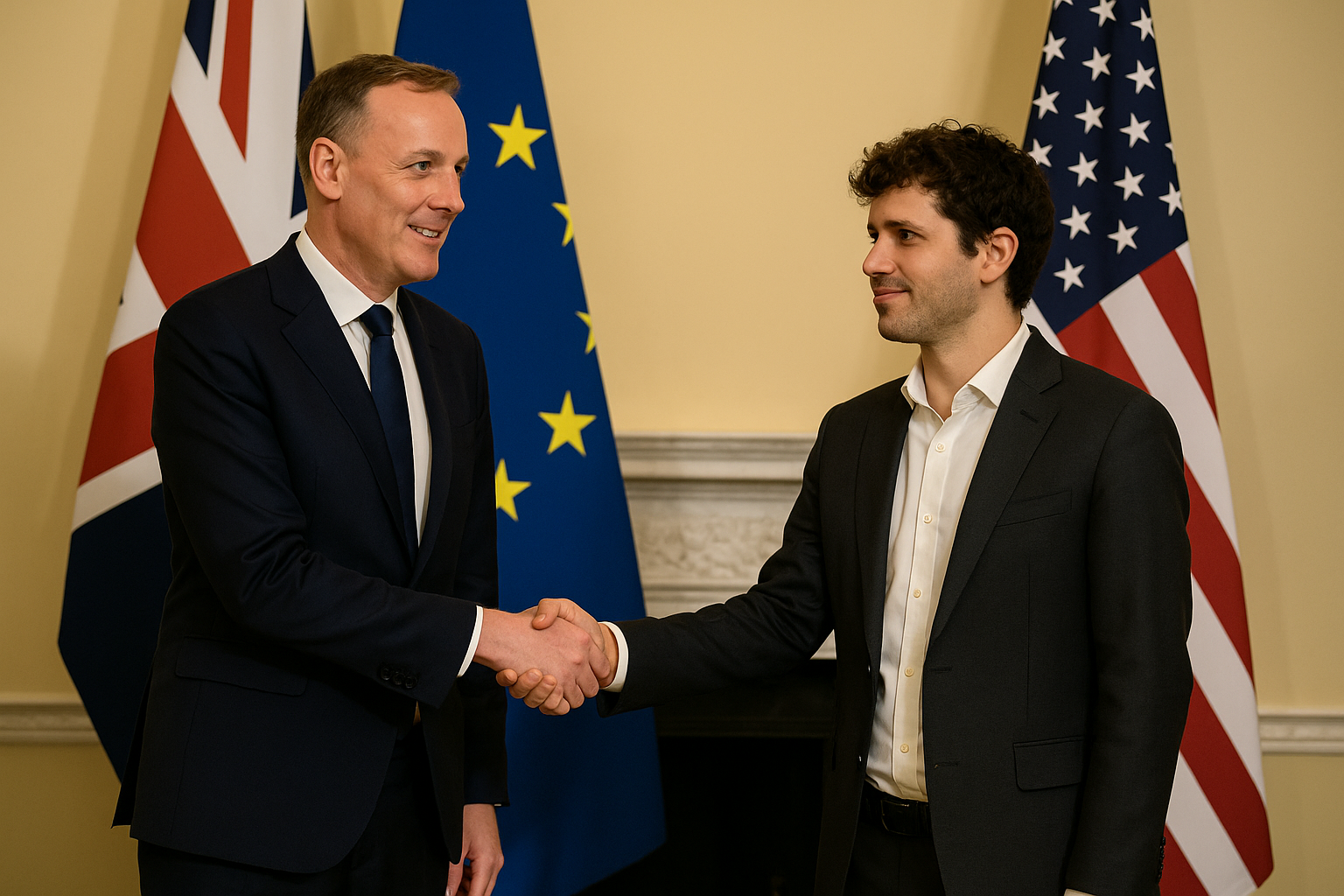In a landmark agreement announced this week, OpenAI has signed a deal with the UK government to bring AI in public services, marking a pivotal shift in how artificial intelligence could shape the future of government operations. The move signals both optimism and concern, highlighting a new era where technology, governance, and ethics intersect in the most public of arenas education, defence, security, and justice.
Revolutionizing Governance with Artificial Intelligence
Under the agreement, OpenAI and the UK’s Department for Science, Innovation and Technology will collaborate to explore how tools like ChatGPT and other advanced AI systems can be integrated into public sector workflows. This could include streamlining administrative processes in the NHS, enhancing legal documentation in the justice system, and even reshaping digital education tools in classrooms.
Technology Secretary Peter Kyle said, “AI will be fundamental in driving change… and a key tool for unlocking economic growth.” According to Kyle, the UK wants to lead in “safe and ethical” AI usage while ensuring taxpayers benefit from innovation.
This partnership reflects the increasing reliance on AI in public services to create more responsive, efficient, and data informed institutions.
Promise or Pitfall?
Dr. Emily Sanderson, a professor of AI Ethics at University College London, weighed in, The government’s agreement with OpenAI presents incredible opportunities automation of redundant tasks, predictive analytics in healthcare, and optimized social services. But the question remains how do we maintain democratic control over algorithmic decisions?
Digital rights campaigners, such as Big Brother Watch, have raised red flags. A spokesperson criticized the government’s “credulous approach to Big Tech,” warning that access to sensitive government data by private firms could breach citizens’ privacy.
This debate illustrates the fine line governments must walk between innovation and intrusion.
AI Integration in Education
One of the most anticipated uses of AI in public services is in the field of education. A 2024 pilot program in Birmingham tested ChatGPT powered tutoring tools in secondary schools. The results were staggering a 32% improvement in personalized learning outcomes, with teachers reporting reduced workload and more time for one on one support.
Yet, the study also highlighted concerns about bias in AI generated content and the potential erosion of teacher autonomy.
Headteacher Louise Mitchell shared her experience, “We saw real engagement among students who struggle with traditional methods. But there’s a need for clear boundaries and human oversight to ensure these tools don’t become the teacher.”
Privacy and Security: Who Owns the Data?
With OpenAI potentially gaining access to UK government data, questions around data sovereignty, cybersecurity, and civil liberties loom large.
AI consultant and former GCHQ analyst Marcus Blythe emphasized, “If OpenAI or any third party gains backend access to sensitive datasets especially in defence or justice the risk matrix changes. There must be transparency and a legal framework ensuring the data is used solely for public benefit.”
Transparency, regular audits, and open communication with the public are essential if such a partnership is to maintain trust.
Global Implications: Is the UK Setting a Precedent?
The UK’s deal with OpenAI is one of the first of its kind among Western democracies, potentially setting a precedent for other governments. While nations like China have embedded AI across public systems with little transparency, Western countries remain hesitant due to democratic and ethical constraints.
If successful, this deal could be a blueprint for the responsible implementation of AI in public services, combining innovation with robust oversight.
A Glimpse of the Future
Sophie Bennett, a junior civil servant in the Department for Work and Pensions, has already used early AI tools in administrative workflows. “It’s like having a digital assistant. Filing reports that once took hours now take minutes. But we still double check everything. It’s helpful, not flawless.”
Her experience echoes what many in the public sector may soon face a transition where AI enhances productivity, not replaces the human touch.
Charting a Balanced AI Future
The OpenAI UK government deal is more than a tech partnership; it’s a societal experiment. It asks a crucial question, Can we harness the power of AI without compromising the principles of democracy, privacy, and fairness?
The answer depends on vigilance, regulation, and collaboration between tech firms, government bodies, civil society, and the public. For now, the world watches as the UK embarks on its boldest AI venture yet integrating AI in public services to redefine the social contract for a digital age.

1 thought on “OpenAI and UK Sign Historic Deal to Use AI in Public Services”